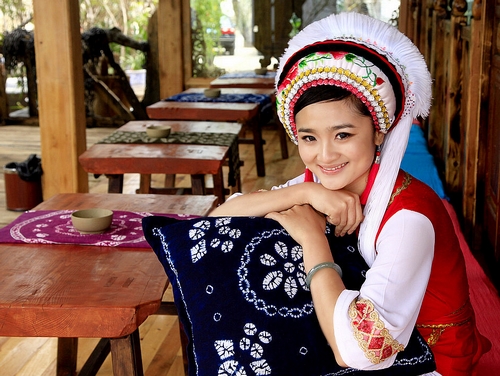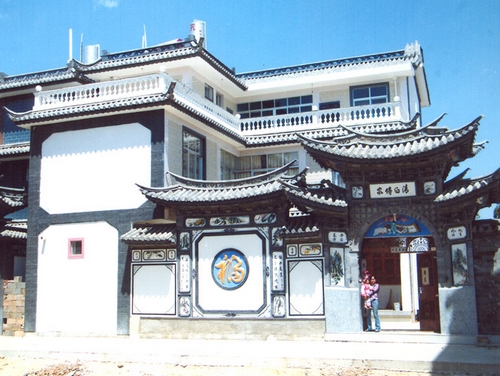The Bai Nationality is one of the 56 ethnic groups officially recognized by the People's Republic of China. Bai people live in southwestern China, mainly Dali of Yunnan Province, Bijie of Guizhou Province, and Hubei Province.
Bai people are descendants of an ancient nationality named Ji, which habited in the drainage area of the Huangshui River during pre-Qin period (about 2,200 years ago). The Ji have been known as Bai until the Han and Jin Dynasties. Bai people speak their own language. The tongue is either a member of the Sinitic branch or the Tibeto-Burman branch of the Sino-Tibetan language family or possibly a part of an independent branch of this family.

Bai literally means white in Chinese. Bai People believe that white represents dignity and high social status, their love in white color gets reflected from clothes. Women generally wear white dresses, sleeveless jackets of red, blue or black color. Men like to wear white jackets, black-collared coats, and dark loose shorts. Their headwear and costume also reflect the Bai symbols: the snow, the moon, the flower, and the wind.
Bai Food is featured as cold and spicy. Cured ham or fish eaten with rice or flour are their favorite food. Most Bai women are masters of making pickles. Bai people like to have a special tea named Sandao Tea.

The most important Bai festivals are the March Fair and the Torch Festival. Each year between the fifteenth and the twentieth day of the third lunar month is their March Fair held in Dali. Originally it was a religious activity to respect their god, nowadays the fair gradually evolved into a fair including performance of traditional sports and dance. On that day Bai people live in different regions also come in Dali and trade in a big market. The Torch Festival is held on the 25th day of the sixth lunar month, Bai people wear costumes, butcher pigs and sheep for a feast to pray for health and a good harvest in the next year.
Bai people are known as hospitable and enthusiastic. Guests from far away are welcomed by the famous Sandao Tea ceremony. They have several interesting traditional customs. For example, On New Year's eve, everybody must return borrowed items and retrieve items they lent to others to avoid bad luck. The seventh day of the New Year is women's day, on that day only women do is having a good rest instead of doing housework like normal. In Yuanlong County, on the 15th of the seventh month of the lunar calendar, people are not allowed to visit others' homes.
